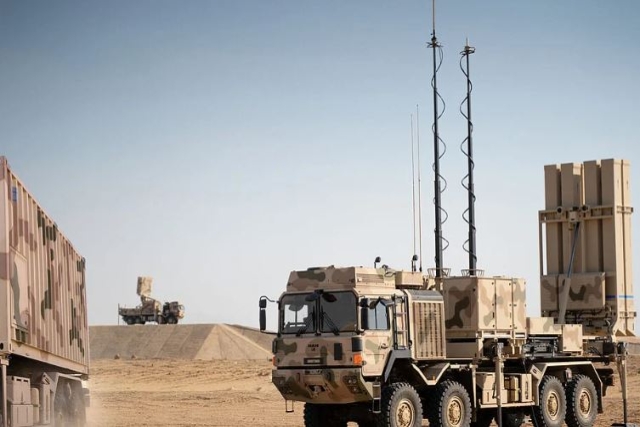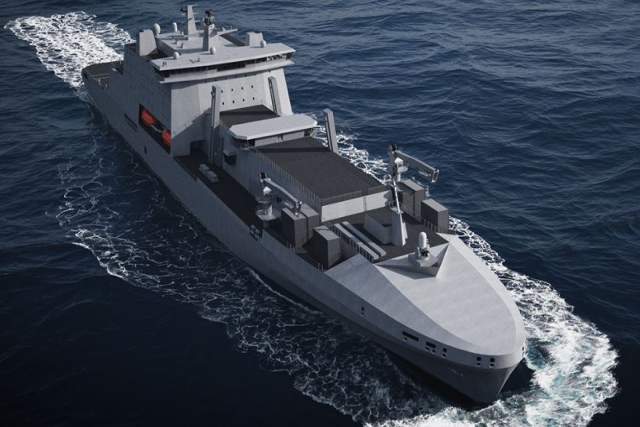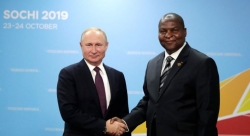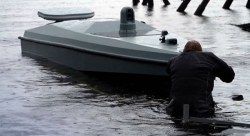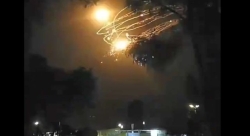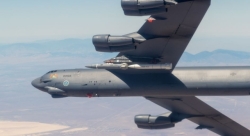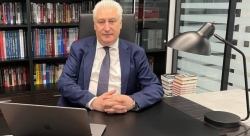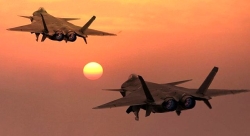Interview with Yuri Slyusar, President of Russia’s United Aircraft Corporation (UAC) and IRKUT Corp
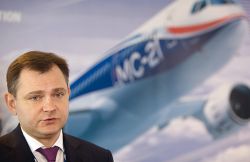
Yuri Slyusar, President of Russia’s United Aircraft Corporation (UAC) and IRKUT Corp
Yuri Slyusar, recently appointed President of Irkut Corporation, Russia commented on the structural changes in his organization and the impact this would have on future of the corporation and on important products of Russian aviation manufactured at the Irkutsk Aviation plant such as the Su-30SM, Yak-130 and Yak-152 military planes and the MC-21 commercial airliner. He made the comments during the course of an interview with Oleg Petrov of Oblastnaya Gaseta Newspaper published from Irkutsk City on Sept 20, 2017. The interview is reproduced in www.defenseworld.net with permission.
DW : Irkut Corporation and Irkutsk Aviation Plant play an important role in the lives of not only employees of the enterprise, but the entire region. How do you see the future of the plant?
Yuri Slyusar: Indeed, the Irkutsk Aviation Plant is the flagship of the Russian aircraft industry. This is one of the best factories in the United Aircraft Corporation. Today the plant is executing mainly military programs such as the production of Su-30SM and Yak-130 aircraft. Besides it is preparing for the launch of the Yak-152 basic trainer. At the same time, the future of the corporation is related to the implementation of the MS-21 program (MC-21 commercial airliner). Our plans are very ambitious. The new generation airliner МС-21 is aimed at the largest market, in terms of the number of aircraft sold, the medium-haul aircraft market with a capacity of 150-200 passengers. The demand for such aircraft in the Russian market alone is estimated at 700 units in the next 20 years. We aim to manufacture up to 70 MC-21 aircraft per year. These are ambitious rates of production that would have made an honor to any enterprise in the Soviet era. I remind you that the whole aviation industry then produced about 100 civilian aircraft (per year). MC-21 is the most modern, most high-tech civil aircraft in the world currently. We hope that it will rightfully be the best in its class, even compared to the current Boeing and Airbus planes. We attach very high hopes to the development of this program at the Irkutsk aircraft plant. Therefore, there will be sufficient work for many years to come.
DW : Will military programs not be curtailed?
Yuri Slyusar: I just want to make it clear - military programs will not be curtailed. We will continue to manufacture all the aircraft that I mentioned earlier until they are in demand. And they, I'm sure, will be in demand for a long time. For example, the Su-30SM aircraft today already constitutes a significant part of the Russian military aviation grouping. Now these aircraft are eagerly awaited by the naval aviation wing of the Russian Navy. During a recent meeting with the leadership of the Navy, the Navy said it would need a minimum of 50 Su-30SM fighter jets in the near future to replace its outdated fleet. In addition, the Su-30 aircraft are deservedly popular in foreign markets. We have contracts for the supply of these aircraft through the military technical cooperation (military partnerships between Russia and foreign countries). A number of countries already having the Su-30 in their arsenal are interested in increasing their fleet size. In addition, we expect new customers for these planes. Suffice to say that interest in the aircraft continues to grow in the global fighter aircraft market.
DW : Why do you think the Russian MoD makes a choice in favor of Su-30SM?
Yuri Slyusar: First of all because the Su-30SM multipurpose fighter has proved itself very well in the course of operation in various conditions, both in our country and abroad. Its brilliance has been proven during combat missions in Syria. In real combat conditions, the Su-30SM demonstrated its high flying performance and wide combat capabilities. Along with this, optimized large-scale production allowed not only to create a reliable, efficient combat aircraft, but also to provide an acceptable cost for the customer and for the contractor. We very much hope that the renovation of the Defense Ministry's fleet (taking into account the requirements of naval aviation) will take place primarily to the benefit of the Su-30SM. We also anticipate an increase in foreign sales of this aircraft. This will be facilitated by the planned modernization of the Su-30SM aircraft. Now we are working on issues such as expanding the range of weapons, increasing combat capabilities and adding a new engine. The aircraft is expected to receive new generation engines to provide improved performance and lower operating cost. All these measures will prolong the life of the Su-30SM aircraft. We hope that the aircraft will be in demand for many more years. This will support the working of the plant, as the Su-30 program is now the basis of the economy of the Irkut Corporation and the Irkutsk plant.
DW : That is, the employees of the plant should not be worried that there may be some cuts?
Yuri Slyusar: There will be no layoffs, no reductions, and no reorganization in the design and production block. Moreover, all those programs, which I listed earlier, provide for an increase in the number of personnel involved in the design and manufacture of these aircraft. This is not something to worry about, it is necessary to prepare here for the fact that work will only increase.
DW : How do you plan to cope with this?
Yuri Slyusar: Those tasks that we are facing require a lot of concentration. And in this sense, the transformations and reorganizations that are carried out, they are aimed at concentrating all of us on the solution of those tasks that are the most crucial and critical for the corporation. These priority tasks are entering the market of transport aviation and the market of civil aircraft construction. For this purpose, a civil aviation division is created. This is exactly the way that should ensure the growth and development of the corporation in a situation of reduction in the state defense order.
DW : What do you plan to rely on in your work?
Yuri Slyusar: I really count on the entire staff of the company, which will enter the new division. And first of all, I would like to see those managers who work in the corporation - Oleg Demchenko, Alexander Veprev, Konstantin Popovich - stay at the helm of the company to ensure the implementation of current tasks and further development of the corporation.
DW : How do you plan to develop social programs that exist in the enterprise?
Yuri Slyusar: All social programs will be retained and expanded. According to our estimates, in the process of reorganization, an economic effect of several billion rubles is expected. A decision was made to save some of the money saved from the next, in 2018, to implement new social programs. In particular, a new housing program for employees of the joint corporation will be launched. The program is designed for five years. At the Irkutsk plant, it will cover 100 people per year. During this period, 500 families of employees of the enterprise will be able to receive compensation in the amount of 50% of the cost of the purchased apartment. The decision on the participation of specific employees in this program will be made by an independent commission. All candidates must meet certain requirements such as work experience at the enterprise of at least five years and readiness to work there for at least another five years after buying an apartment. This is just one example of the expansion of social programs that we have planned.
DW : Training of young specialists will also be continued?
Yuri Slyusar: We really need qualified staff. None of the most modern and expensive equipment, even the most automated, cannot do without a competent motivated specialist. Therefore, we will continue to pay special attention to the professional training of our employees. The plant has already developed a continuous system of training. It includes not only regular professional development, but also targeted education in the technical school, IRNIT. All these programs will continue.


